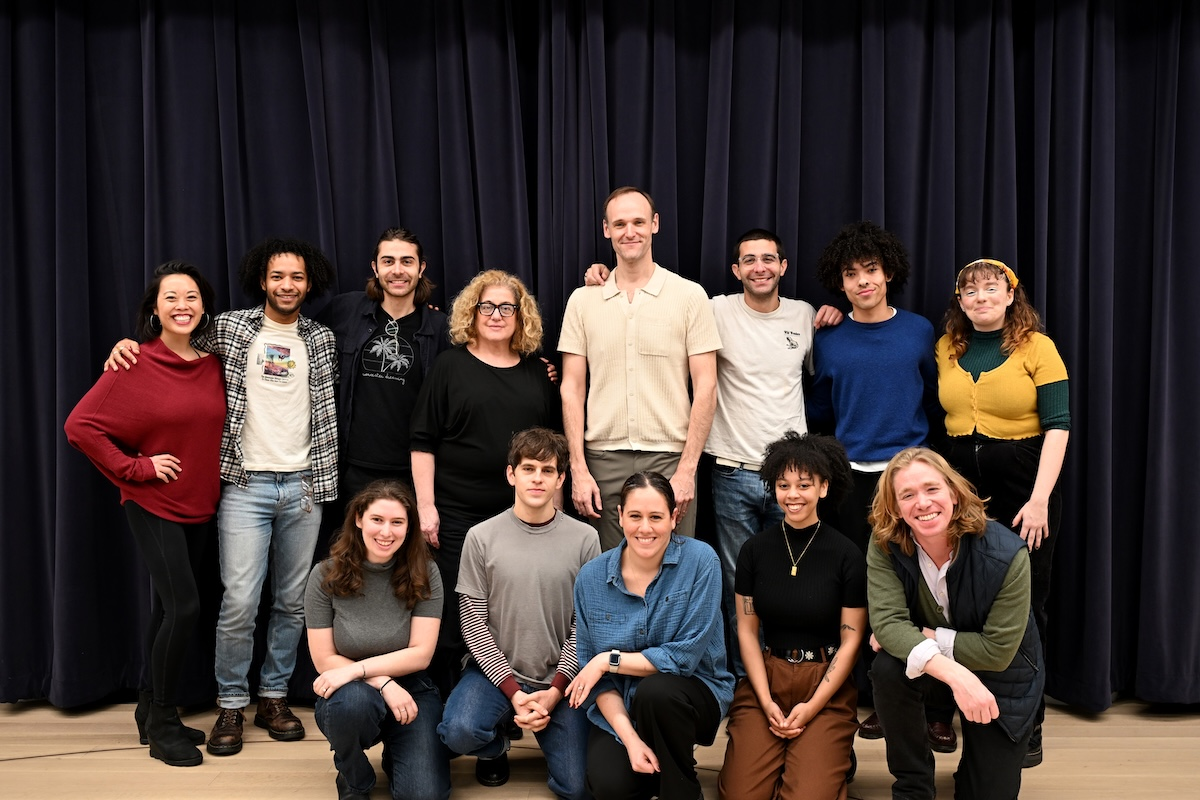Sci-fi books have a unique ability to transport readers to extraordinary worlds filled with complex themes, often tackling issues such as artificial intelligence and the future of humanity. These narratives not only entertain but also provoke critical thinking about society’s trajectory and the potential consequences of technological advancements. From exploring the ethics of AI in literature to illuminating the effects of censorship in sci-fi, these novels serve as a mirror reflecting our anxieties and hopes. Many of the best sci-fi novels delve into the intricate relationship between mankind and artificial beings, raising questions about what it truly means to be human. As readers seek science fiction recommendations, it is clear that these stories are more than mere fantasies—they are a commentary on the realities we face today.
The realm of speculative fiction beckons readers with its captivating exploration of futuristic concepts and profound philosophical inquiries. Often referred to as speculative or imaginative literature, these narratives challenge conventional thinking while addressing pressing issues like the interplay of technology and society. Works within this genre often encapsulate the essence of humanity, pondering the role of artificial intelligence as allies or adversaries in our existence. As enthusiasts sift through a myriad of recommendations, the best titles prominently examine dilemmas related to censorship, pushing the boundaries of creativity and thought. In this literary sphere, the complex dialogue between AI and human experience unfolds, inviting readers to reflect on their own understanding of reality.
Exploring the Impact of AI in Sci-Fi Literature
Artificial Intelligence (AI) has become a central theme in contemporary science fiction, challenging our understanding of what it means to be human. Books like ‘Blindsight’ by Peter Watts offer a unique perspective on AI, forcing readers to question the essence of consciousness and its evolutionary significance. As we create machines that mimic our thought processes, Watts compels us to confront the unsettling reality that higher forms of intelligence may not share the same self-awareness we consider fundamental to humanity. This narrative encapsulates the tension between AI advancements and our own identity, making it a valuable read for anyone pondering the future of both technology and humanity.
Moreover, the increasing prevalence of AI-driven narratives within sci-fi literature reflects our society’s fascination and fear regarding artificial intelligence. As characters interact with AI in various settings, the stories often serve as both cautionary tales and explorations of potential future scenarios, each presenting implications for our relationship with technology. Sci-fi books help to shine a light on the values and ethics surrounding AI, urging readers to consider how these creations can influence societal norms, personal connections, and even the very fabric of reality.
The Role of Censorship in Shaping Sci-Fi Narratives
Censorship has historically influenced the themes and accessibility of science fiction literature, leading authors to explore complex ideas through veiled narratives. A notable example is Han Song’s ‘Exorcism,’ which critiques governmental constraints on freedom of expression. Despite being silenced, Song’s work thrives on its ability to engage with themes of societal control and existential angst. Readers are invited to reflect on the importance of preserving intellectual freedom, even in an age where complex truths are often obscured by political agendas. By confronting the burdens of censorship, sci-fi authors illuminate the dire need for open discourse.
Similarly, Ray Bradbury’s ‘Fahrenheit 451’ serves as a poignant reminder of the dangers of suppressing knowledge and critical thought. As readers witness a society where books are banned, they grapple with the implications of losing access to diverse perspectives—an issue that is alarmingly relevant today. In an era dominated by algorithmic selection and curated content, Bradbury’s warning resonates deeply: protecting intellectual freedom requires vigilance against distractions that can lead to a passive acceptance of the status quo. This serves as a call to action for modern readers to resist censorship in all forms.
Best Sci-Fi Novels: A Faculty Recommendation List
The exploration of artificial intelligence, society, and human existence has given rise to a remarkable collection of science fiction novels recommended by academic experts. Faculty members from Harvard suggest a diverse range of sci-fi books that provoke thought and discussion about our rapidly changing world. For instance, Karen Brennan’s choice, ‘Blindsight,’ not only engages with profound questions surrounding AI but also challenges our assumptions about consciousness itself. This book, alongside others, illustrates the multifaceted nature of AI-themed narratives within literature, making them essential readings for anyone intrigued by future technology.
Additionally, classics like ‘Solaris’ by Stanislaw Lem offer breathtaking explorations of human interaction with alien intelligences, highlighting the limits of communication and understanding. These novels often act as mirrors reflecting our contemporary dilemmas regarding connectivity and alienation amidst technological growth. Recommended by attentive educators, these best sci-fi novels serve not only as entertainment but as vital commentaries on the intersection of technology, ethics, and human emotion, encouraging readers to ponder their own place in the universe.
Human Emotion and AI: Lessons from Sci-Fi
Jasmine Warga’s ‘A Rover’s Story’ presents a fascinating examination of human emotion through the lens of AI, illustrating the nuanced relationships that can form between humans and machines. This middle-grade novel captures the essence of connection and companionship, resonating with readers of all ages. As the character Res, the Mars rover, interacts with humans, the narrative prompts critical reflections on what it means to forge emotional bonds with artificial beings. This kind of storytelling offers younger generations a grounding point for discussing the implications of future technologies in their lives.
Furthermore, discussions prompted by ‘A Rover’s Story’ extend beyond its pages, leading adults and children alike to contemplate the importance of human connection in an increasingly computerized world. As AI continues to evolve, literature such as Warga’s encourages readers to embrace their unique qualities and emotional experiences, asserting that even as technology becomes more sophisticated, it can never replicate the depth of human relationships. This underlying theme serves as a reminder that amidst the fascination with AI, the essence of humanity remains irreplaceable.
Societal Reflections through Science Fiction
Science fiction serves as a mirror reflecting societal anxieties and aspirations, providing a platform for critical examinations of our world. Works like ‘Exorcism’ by Han Song challenge readers to confront uncomfortable truths about the intersecting realms of technology and humanity. Through vivid storytelling, Song captures the chaos of a struggling universe while simultaneously offering insight into the human condition. Such narratives not only entertain but provoke necessary discussions about governmental control, personal freedoms, and the ethical implications of technology’s role in our lives.
In similar fashion, Bradbury’s ‘Fahrenheit 451’ encapsulates fears surrounding information control and societal complacency, urging readers to resist the numbing effects of entertainment culture. As the novel illustrates, the battle against censorship is not merely about banning books but understanding the deeper dangers of an uninformed public. The societal reflections present in these sci-fi masterpieces compel readers to engage critically with their realities, pressing upon them the need to protect intellectual freedom in the face of evolving challenges.
The Fascinating Evolution of Sci-Fi Themes
The evolution of themes within sci-fi literature has mirrored shifts in technological advancements and societal concerns. From the early works that depicted space travel to contemporary narratives grappling with AI and its implications on society, sci-fi has continually adapted to reflect the zeitgeist of its times. As writers explore newer technologies, they often incorporate deeper philosophical inquiries into their narratives, fostering discussions about ethics, environmental issues, and the essence of humanity. This evolution not only showcases the genre’s adaptability but also emphasizes its relevance in scholarly discourse and cultural critique.
In particular, the recent surge in novels addressing AI highlights the pressing questions of our digital age, where the line between human and machine becomes increasingly blurred. Authors use these themes to examine our relationship with technology, prompting readers to rethink traditional ideas of intelligence and consciousness. As the genre expands, so do the possibilities for exploring stories that resonate with contemporary audiences, making sci-fi books essential for understanding both our past and future trajectories.
The Future of Humanity: Insights from Sci-Fi Books
Science fiction literature holds a powerful lens through which we can explore the potential futures of humanity. Works like ‘Blindsight’ challenge readers to consider what it might mean for humanity to coexist with dominant intelligence that lacks self-awareness. Such narratives raise critical questions about the direction of our technological advancements and their implications for our identity. These reflections invite readers to envision scenarios where human attributes may either flourish or falter in the age of highly capable AI, prompting important discussions about ethical evolution.
Moreover, the insights derived from sci-fi are not confined to mere speculation; they serve as cautionary tales and hopeful visions alike. By presenting various perspectives on AI’s integration into society, these works underscore both the potential benefits and risks of our choices. As readers engage with these narratives, they gain a broader understanding of what it means to be human in an increasingly complex world, paving the way for thoughtful dialogue about our collective future and the ethical responsibilities accompanying technological progress.
Cultural Reflections in Science Fiction
Sci-fi literature serves as a vehicle for cultural commentary, weaving together narratives that reflect the complexities of human experiences in a rapidly changing world. Authors often draw upon their cultural contexts to craft stories that resonate with pressing global issues. Through the lens of speculative fiction, themes of identity, freedom of expression, and societal values are explored, provoking readers to engage with difficult questions about their realities. Works that tackle censorship and social control, like Han Song’s ‘Exorcism,’ highlight the importance of cultural narratives in times of political turmoil.
As readers delve into these multi-layered narratives, they are encouraged to think critically about the impact of technology and governance on individual lives. This cultural introspection fosters a deeper appreciation for the interplay between science fiction and real-world developments, encouraging engagement with both fiction and reality. By capturing the essence of contemporary sentiments and concerns, sci-fi novels not only entertain but also educate and inspire action towards a more informed and liberated society.
The Emotional Connection between Humans and AI
The exploration of emotional connections between humans and artificial intelligence is a topic frequently tackled in science fiction literature. Novels like ‘A Rover’s Story’ present an engaging perspective on this relationship, showcasing how characters navigate their feelings towards machines that display human-like qualities. Such narratives raise questions about empathy, companionship, and the meaning behind our emotional ties with AI. Through storytelling, authors encourage readers to ponder what it truly means to connect with an artificial being while considering the implications for their own lives as technology becomes an ever-present force.
This exploration of emotional relationships serves as a crucial foundation for discussions about the real-world impact of AI on our social fabric. As we move further into an era where machines may fulfill roles traditionally reserved for human interaction, these stories challenge us to reflect on the inherent qualities that define our humanity. By inviting readers to engage with these complex themes, sci-fi literature continues to play an important role in shaping our understanding of AI and its potential to enhance or complicate our emotional lives.
Frequently Asked Questions
What are some of the best sci-fi novels that explore AI in literature?
Some of the best sci-fi novels exploring AI in literature include ‘Blindsight’ by Peter Watts, which challenges our understanding of consciousness and intelligence, and Ray Bradbury’s ‘Fahrenheit 451’, which critiques censorship and the role of technology in shaping our thoughts. These works invite readers to reflect on the implications of AI and humanity’s relationship with technology.
How does censorship in sci-fi affect the themes of AI and humanity?
Censorship in sci-fi often serves to underscore themes of AI and humanity by limiting the narratives available about technology’s impact on society. For example, Han Song’s ‘Exorcism’ challenges state-imposed limits on storytelling, exploring the nature of reality and human agency amidst systemic control. Such narratives remind us of the importance of free expression in understanding the complexities of AI and our future.
What sci-fi books offer science fiction recommendations for exploring humanity’s future with AI?
Books like ‘Solaris’ by Stanislaw Lem and ‘A Rover’s Story’ by Jasmine Warga present science fiction recommendations that delve into humanity’s future interactions with AI. ‘Solaris’ examines the limits of human understanding in the face of alien intelligence, while ‘A Rover’s Story’ reflects on emotional connections between humans and machines, highlighting our evolving relationship with technology.
Which sci-fi novels serve as warnings about technology and censorship?
Ray Bradbury’s ‘Fahrenheit 451’ serves as a powerful warning about censorship and the dangers of allowing technology to erode critical thinking and intellectual freedom. Similarly, Han Song’s ‘Exorcism’ critiques how societal control can distort reality, emphasizing the need for awareness in our consumption of technology and media. Both novels encourage readers to remain vigilant against the consequences of unchecked technological influence.
How do contemporary sci-fi books address the relationship between AI and humanity?
Contemporary sci-fi books like ‘Blindsight’ and ‘A Rover’s Story’ explore the nuanced relationships between AI and humanity. ‘Blindsight’ questions the essence of consciousness and the possibilities of intelligence beyond human understanding, while ‘A Rover’s Story’ emphasizes emotional bonds between humans and machines, prompting readers to consider what it means to be human in a technologically advancing world.
| Title | Author | Key Themes | Recommended By |
|---|---|---|---|
| Blindsight | Peter Watts | Explores AI, consciousness, and the limits of human intelligence. | Karen Brennan, Harvard’s Creative Computing Lab Director |
| Solaris | Stanislaw Lem | Encounters with the unknown and humility in scientific exploration. | Theo Anthony, Radcliffe Institute |
| A Rover’s Story | Jasmine Warga | Emotional bonds and humanity’s relationship with AI and machines. | Amy Deschenes, Harvard Library |
| Exorcism | Han Song | Critique of censorship and the narrative of reality amidst chaos. | Ursula Friedman, College Fellow |
| Fahrenheit 451 | Ray Bradbury | Censorship and the importance of critical thinking in the age of AI. | Jeff Saviano, Business AI Ethics Leader |
Summary
Sci-fi books have a unique capacity to challenge our understanding of technology and society, often providing warnings or inspirations for the future. The recommended titles by Harvard faculty illuminate various aspects of artificial intelligence, censorship, and human connections. From Peter Watts’ chilling exploration of consciousness in “Blindsight” to Ray Bradbury’s cautionary tale “Fahrenheit 451,” these novels prompt deep reflections on the evolving landscape of our reality. In an age where technology increasingly shapes our experiences, engaging with these sci-fi books can empower readers to critically assess the cultural narratives surrounding us.



